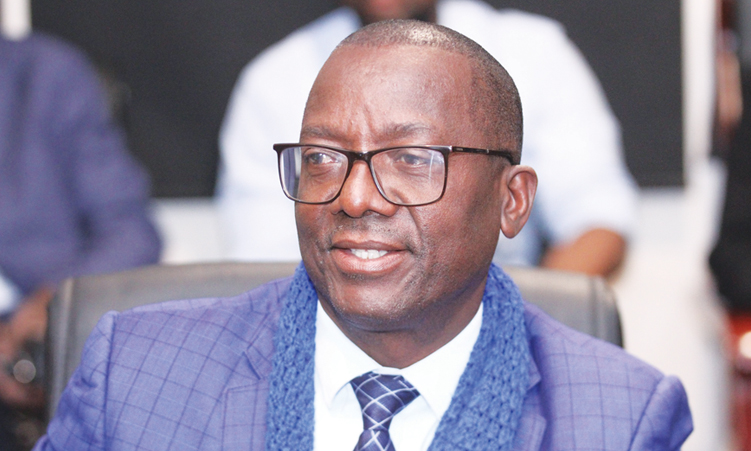The minister of urban and rural development, Erastus Uutoni, says his ministry has serviced 3 103 plots with water, sewerage, electricity services and road infrastructure.
The annual target for the ministry is 6 500 plots, according to the budget books.
Uutoni recently motivated his ministry’s N$2,5-billion budget for the new financial year in the National Assembly.
“. . . and a further 4 791 plots partially serviced and/or in the process to be fully serviced in various areas of the country,” he said.
The World Bank estimates a housing backlog of 300 000 units, with Windhoek having the biggest debt of 84 000 houses.
Uutoni said countrywide massive urban land servicing will be allocated N$360 million for the year.
The programme overseeing the newly approved housing policy and other land-related policies will cost N$1,07 billion.
“The budgetary allocation to this programme will be deployed to sustain and scale up our existing and new policy initiatives that are aimed at creating increased and inclusive access to and opportunities for land tenure security and decent housing for our citizens in general, with a special focus on the section of our population that falls in the ultra low-income groups, as well as those who reside in informal settlement areas with no access to basic municipal services,” the minister explained.
The government’s housing programme, called ‘Upgrading of Informal Settlements’ will be allocated N$193,6 million.
A programme is meant to address the mushrooming of shacks countrywide is the ‘Informal Settlement Upgrading Affordable Housing Pilot Project’, initiated in 2019 by the government, the National Housing Enterprise, the Khomas Regional Council and the Windhoek municipality, which has seen 314 houses built.
“[This] intervention entails targeted and a mix of projects focusing on accelerating the planning and proclamation of townships and the subdivision of land, thereby facilitating security of tenure over land, as well as the provision of basic municipal infrastructure and services like water, electricity, sewerage, roads and stormwater in targeted informal settlements,” Uutoni told parliamentarians.
For housing delivery through a combination of initiatives through other government-funded housing programmes such as the Mass Housing Development Programme, Build Together Programme and grant support to the Shack Dwellers Federation of Namibia, a combined N$221,8 million has been allocated.
The Mass Housing Development programme has delivered 4 380 houses in 10 years, the Shack Dwellers Federation of Namibia has produced 7 757 houses, and the Build Together Programme has produced 41 990 houses since its implementation in 1992, Uutoni said.
This is in line with the announcement made by minister of finance and public enterprises Iipumbu Shiimi that N$700 million would be allocated to informal settlement upgrades, land servicing and other programmes.
Furthermore, the ministry will give N$31 million to regional councils specifically for rural sanitation.
The new housing policy states that about 50% of Namibia’s population has no access to adequate sanitation.
Last year, the ministry built 600 ventilated toilets countrywide.
N$8,8 million has been allocated to self-help income and employment-generating projects, N$9,5 million to community outreach advisory services and N$35,5 million for the ongoing construction of rural development centres.
Moreover, local authorities will get assistance of N$250 million to acquire and install prepaid water metres.
Lüderitz and the Aus settlement in the //Kharas region have been allocated N$91 million and N$50 million, respectively, for the implementation of green hydrogen projects.
“ . . . for the planning and development of the infrastructure that is required to support the expected industrial development, urban expansion and population influx,” Uutoni said.
He said N$15,9 million will be spent on decentralisation.
The Ministry of Works and Transport, as well as the Ministry of Education, Arts and Culture were last year’s decentralisation targets.
Local, regional and traditional authorities will get N$904 million for service delivery, while N$362 million is set aside for reimbursement to NamWater (N$56 million), land compensation (N$113 million) and emergency services support (N$10 million) among others.
Stay informed with The Namibian – your source for credible journalism. Get in-depth reporting and opinions for
only N$85 a month. Invest in journalism, invest in democracy –
Subscribe Now!






